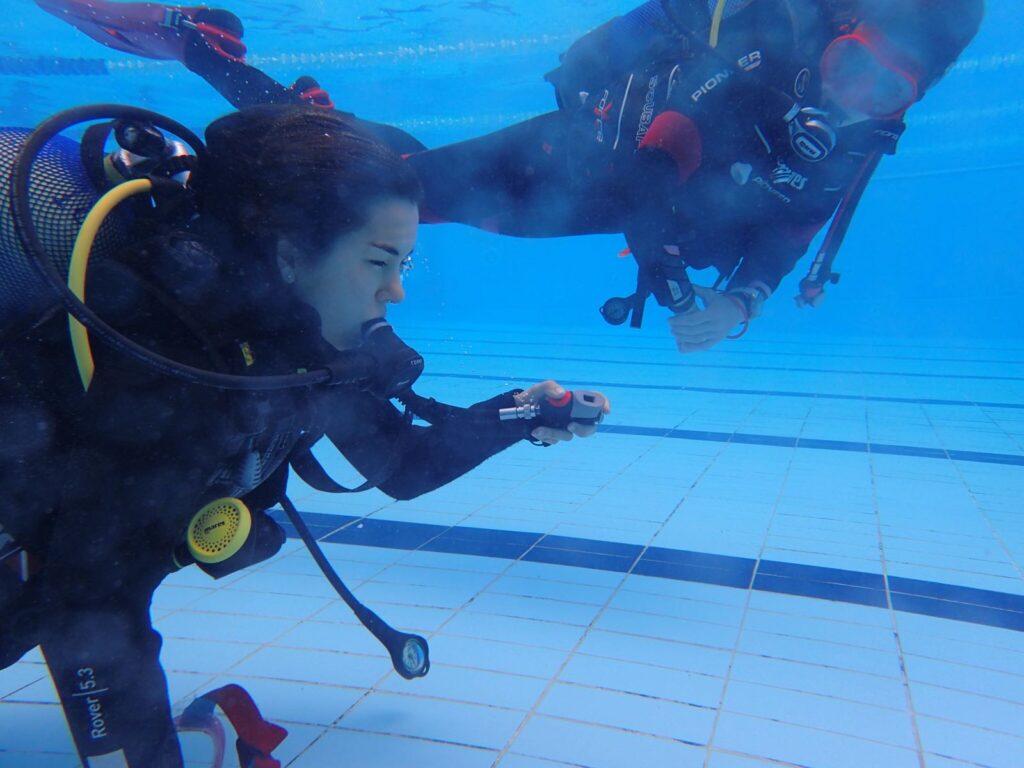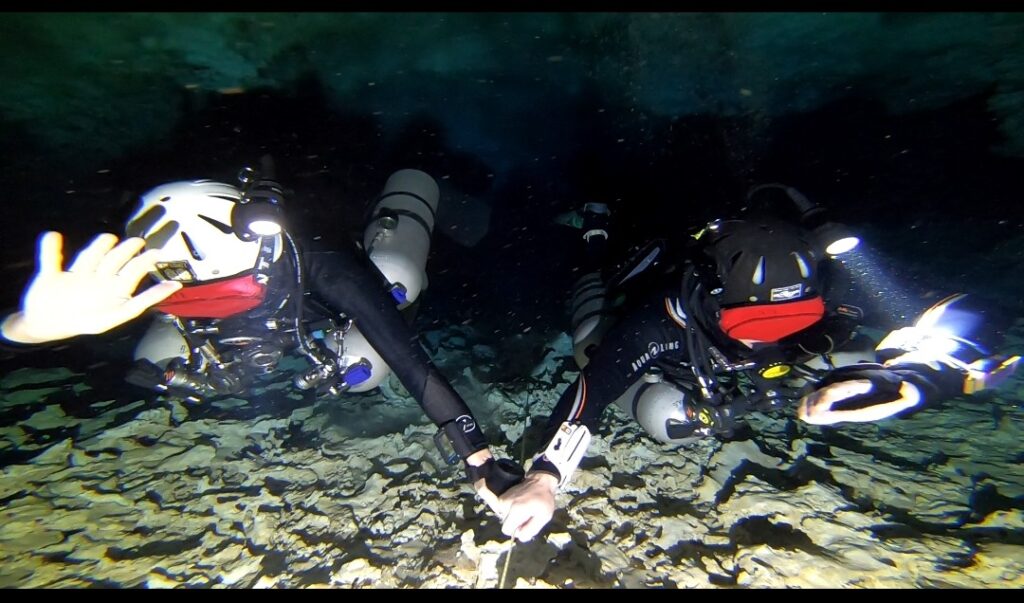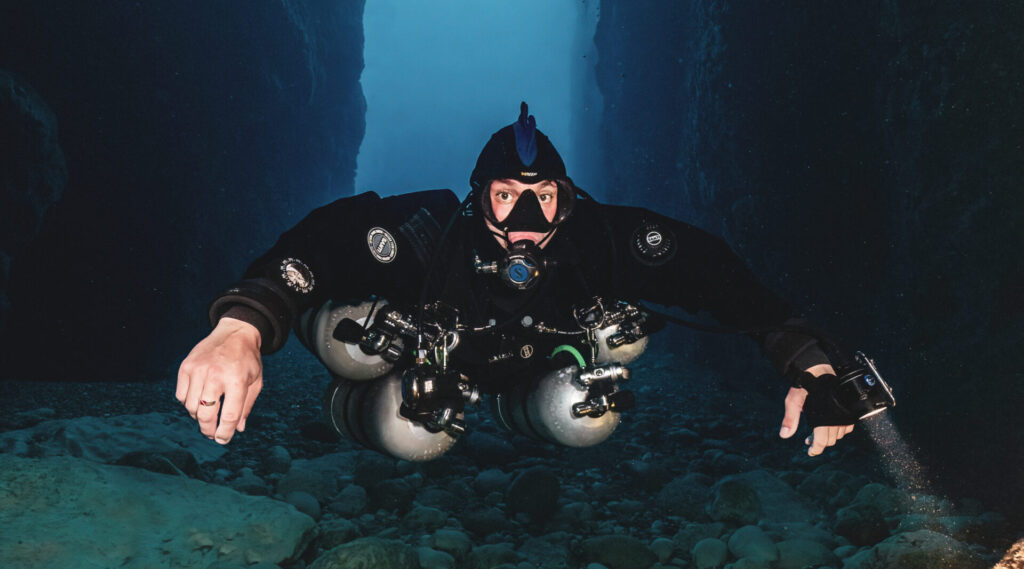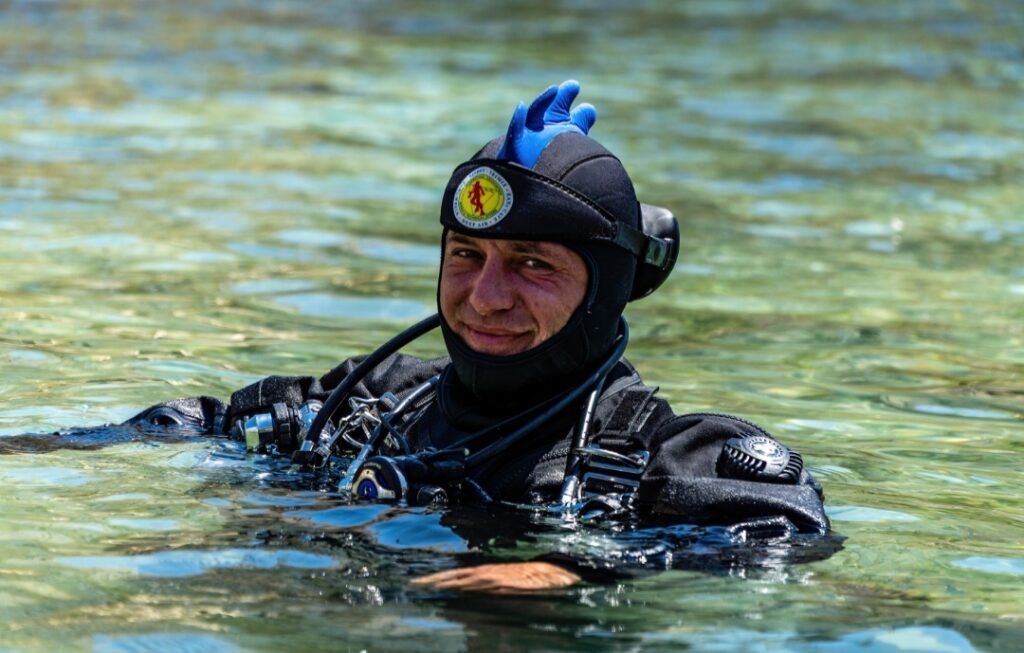Scuba Diving Courses
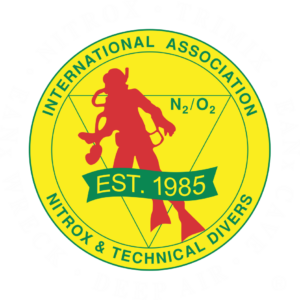
Recreational Diving Training:
Recreational diving training provides diving enthusiasts with the essential skills and knowledge to explore the underwater world safely and responsibly.
These courses typically cover fundamental diving techniques, equipment usage, and essential safety procedures.
Novice divers, first and foremost, learn to manage their buoyancy and practice basic exercises. On the other hand, experienced divers will discover new approaches to diving in advanced, rescue, or various specialty courses. They will learn, among other things, how to navigate underwater environments and appreciate marine life while minimizing their impact on fragile ecosystems.
Thanks to recreational diving training, participants gain the confidence needed to embark on unforgettable underwater adventures, fostering a deep appreciation for the wonders of the ocean and the importance of marine conservation, all while having fun.
Technical Diving Training (Ocean):
Technical diving and cave diving training are specialized and demanding disciplines in the world of underwater diving.
As a result, technical diving involves the use of advanced equipment and techniques to explore greater depths and longer dive times. To become proficient technical divers, candidates undergo rigorous training. They learn to use gas mixtures and decompression procedures. Additionally, they work as a team and with a different equipment configuration to handle the complexities and potential dangers of this type of diving.
Cave Diving Training:
Cave diving training provides divers with the necessary skills to safely explore underwater cave systems.
These courses cover specialized navigation, line management, and emergency procedures in cave environments. Furthermore, teamwork, often in pairs or trios, plays a crucial role in this type of diving.
In addition to navigation and safety, these courses also emphasize the importance of respecting the fragile cave ecosystems.
Dive Instructor Training:
IANTD dive instructor training is designed for IANTD divemasters or divemasters from other diving agencies looking to switch to IANTD, whether to teach recreational or technical diving. It also applies to instructors from other agencies looking to make a crossover.
Once you become an IANTD instructor, you will have access to a wide range of recreational and technical training programs, such as sidemount, nitrox, or even trimix.
As a Trainer, Julien Garnier will guide you to achieve your goal of becoming a recreational or technical dive instructor, providing personal training and evaluation at the end of the course.
